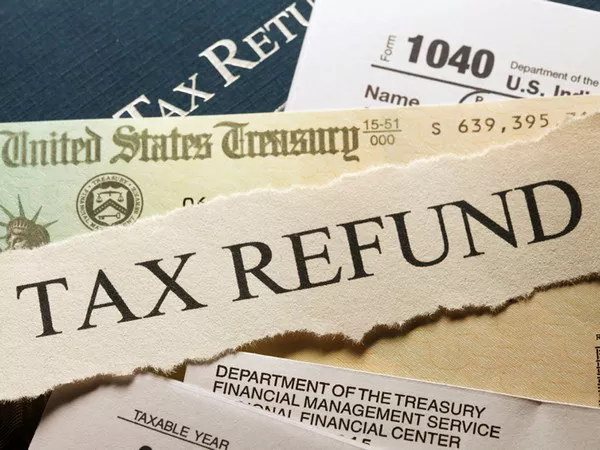A recent survey conducted by GOBankingRates in 2024 revealed that over 65% of Americans anticipate receiving tax refunds this year. While this additional influx of cash can be a boon for achieving financial goals, it also presents opportunities for missteps if not managed wisely. Let’s delve into some of the most common mistakes individuals make with their tax refunds.
Top 5 Mistakes People Make With Their Tax Refunds
1. Not Having a Plan
Planning is a cornerstone of sound financial management, and it applies equally to tax refunds. Before your refund lands in your bank account, take stock of your current financial objectives. Whether it’s paying off credit card debt, saving for a home, or investing in your child’s education, having a clear plan in place ensures your refund is put to good use. However, merely crafting a plan isn’t enough; it must be executed diligently. All too often, individuals either lack a plan altogether or fail to follow through on their intended financial strategy, allowing their refund to languish in their bank accounts, used for unplanned expenses.
According to Jay Zigmont, Ph.D., CFP, founder of Childfree Wealth, “Whenever you get a tax refund or other large windfalls such as a bonus, you should use the money as part of your financial plan, not as ‘found money.’ When you get a refund, it is not a gift from the government, but a repayment of the money you loaned them across the year.”
2. Forgetting the Emergency Fund
An emergency fund serves as a critical safety net, providing financial security in the event of unforeseen expenses. However, some individuals neglect to prioritize this fund, even when receiving a tax refund. While experts recommend having three to six months’ worth of expenses set aside, building this fund incrementally is key. Allocate a portion of your tax refund towards your emergency fund, while directing the remaining funds towards other financial objectives outlined in your plan.
3. Spending on Wants While Ignoring Needs
The allure of discretionary spending can be strong when presented with a windfall. However, indulging in wants at the expense of needs can derail your financial progress. While vacations and luxury purchases may be appealing, it’s essential to prioritize needs over wants, especially if you’re still grappling with debt. As Zigmont advises, “Vacations are very common wants. While we all want a vacation, we need to plan and save for travel, not just go.”
4. Ignoring Retirement
The prospect of retirement may seem distant, particularly for young professionals. However, neglecting retirement savings early in your career can have significant repercussions down the line. Maximizing contributions to retirement accounts, such as IRAs, is crucial for ensuring financial security in later years. Failing to allocate a portion of your tax refund towards retirement savings means missing out on valuable opportunities to bolster your financial future.
Mike Kojonen, founder of Principal Preservation Services, emphasizes the importance of prioritizing retirement savings: “Putting a tax refund into an IRA or retirement savings account not only supports long-term financial goals but can also provide tax benefits for the following year.”
5. Not Seeking Financial Guidance
Receiving a substantial sum of money can be overwhelming, leading many individuals to feel uncertain about how best to allocate their tax refunds. In such instances, seeking professional financial advice can be invaluable. Financial planners can offer personalized guidance tailored to your unique circumstances, helping you make informed decisions about your refund. Additionally, collaborating with a CPA or tax preparer to optimize your withholding ensures that you’re not overpaying taxes, thereby minimizing the likelihood of receiving a large refund in the future.
In conclusion, while receiving a tax refund may be cause for celebration, it’s essential to approach it with a strategic mindset. By formulating a plan, prioritizing financial needs, and seeking professional guidance, you can maximize the benefits of your tax refund and take meaningful steps towards achieving your long-term financial objectives.

























